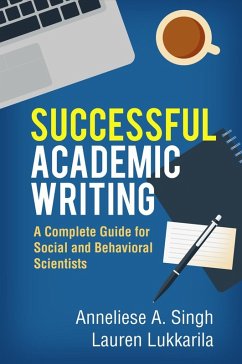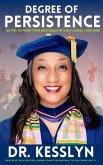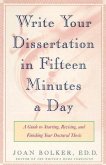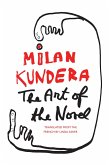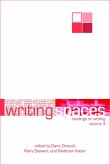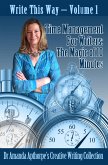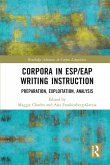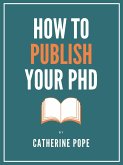Using rich examples and engaging pedagogical tools, this book equips students to master the challenges of academic writing in graduate school and beyond. The authors delve into nitty-gritty aspects of structure, style, and language, and offer a window onto the thought processes and strategies that strong writers rely on. Essential topics include how to: identify the audience for a particular piece of writing; craft a voice appropriate for a discipline-specific community of practice; compose the sections of a qualitative, quantitative, or mixed-methods research article; select the right peer-reviewed journal for submitting an article; and navigate the publication process. Readers are also guided to build vital self-coaching skills in order to stay motivated and complete projects successfully.
User-Friendly Features
*Exercises (with answers) analyzing a variety of texts.
*Annotated excerpts from peer-reviewed journal articles.
*Practice opportunities that help readers apply the ideas to their own writing projects.
*Personal reflections and advice on common writing hurdles.
*End-of-chapter Awareness and Action Reminders with clear steps to take.
User-Friendly Features
*Exercises (with answers) analyzing a variety of texts.
*Annotated excerpts from peer-reviewed journal articles.
*Practice opportunities that help readers apply the ideas to their own writing projects.
*Personal reflections and advice on common writing hurdles.
*End-of-chapter Awareness and Action Reminders with clear steps to take.
Dieser Download kann aus rechtlichen Gründen nur mit Rechnungsadresse in A, D ausgeliefert werden.
"A true gem of a book that addresses critical aspects of academic writing that I have not seen elsewhere. In an easy-to-access, conversational style, the authors delve into the logic, content, and structure of writing for an academic or professional audience. Excellent pedagogical tools encourage readers to analyze various writing styles in order to craft their own academic voices. I highly recommend this book for both class and professional use, and will use it in my doctoral classes."--Susan P. Robbins, PhD, LCSW, Graduate College of Social Work, University of Houston
"If you are looking for a complete text to inspire and instruct graduate students in academic writing, look no further. The strengths of the book include its clarity and the practice exercises embedded in each chapter, which give students a chance to apply what they have read and check their mastery. The text boxes and the end-of-chapter Awareness and Action Reminders are also especially useful."--Peggy Meszaros, PhD, Department of Human Development, Virginia Tech
"As a journal editor, I thank the authors for this book. We receive way too many manuscripts that are improperly formatted, not in the journal's scope, et cetera. I am so glad to see all of the advice about doing the boring but important work of making a manuscript review-ready. This book will be helpful for our students who are truly struggling to find their way, both as writers and as future faculty. It offers a less intimidating way for them to learn the ropes and get basic advice, and it will help them know what questions to ask their advisors."--Vanessa P. Dennen, PhD, College of Education, Florida State University; Editor-in-Chief, The Internet and Higher Education
"Many graduate students struggle with writing, and their mentors are not always particularly good at articulating how they might improve. I would use this book in my research methods class. I love the section on 'writer-responsible' writing, which gets at what I am always trying to convey to students in a concise and elegant way. The peer-reviewed journal exemplars are a great addition, and the ways each one illustrates specific concepts are well explained."--Ann Marie Ryan, PhD, Department of Psychology, Michigan State University-This book would be an excellent textbook or reference for graduate students. In particular, I would recommend using the book for an introductory class in the graduate program. Also, if I was advising undergraduate honors students, I would use some of the chapters with them.--Family and Consumer Sciences Research Journal, 3/1/2018
"If you are looking for a complete text to inspire and instruct graduate students in academic writing, look no further. The strengths of the book include its clarity and the practice exercises embedded in each chapter, which give students a chance to apply what they have read and check their mastery. The text boxes and the end-of-chapter Awareness and Action Reminders are also especially useful."--Peggy Meszaros, PhD, Department of Human Development, Virginia Tech
"As a journal editor, I thank the authors for this book. We receive way too many manuscripts that are improperly formatted, not in the journal's scope, et cetera. I am so glad to see all of the advice about doing the boring but important work of making a manuscript review-ready. This book will be helpful for our students who are truly struggling to find their way, both as writers and as future faculty. It offers a less intimidating way for them to learn the ropes and get basic advice, and it will help them know what questions to ask their advisors."--Vanessa P. Dennen, PhD, College of Education, Florida State University; Editor-in-Chief, The Internet and Higher Education
"Many graduate students struggle with writing, and their mentors are not always particularly good at articulating how they might improve. I would use this book in my research methods class. I love the section on 'writer-responsible' writing, which gets at what I am always trying to convey to students in a concise and elegant way. The peer-reviewed journal exemplars are a great addition, and the ways each one illustrates specific concepts are well explained."--Ann Marie Ryan, PhD, Department of Psychology, Michigan State University-This book would be an excellent textbook or reference for graduate students. In particular, I would recommend using the book for an introductory class in the graduate program. Also, if I was advising undergraduate honors students, I would use some of the chapters with them.--Family and Consumer Sciences Research Journal, 3/1/2018

